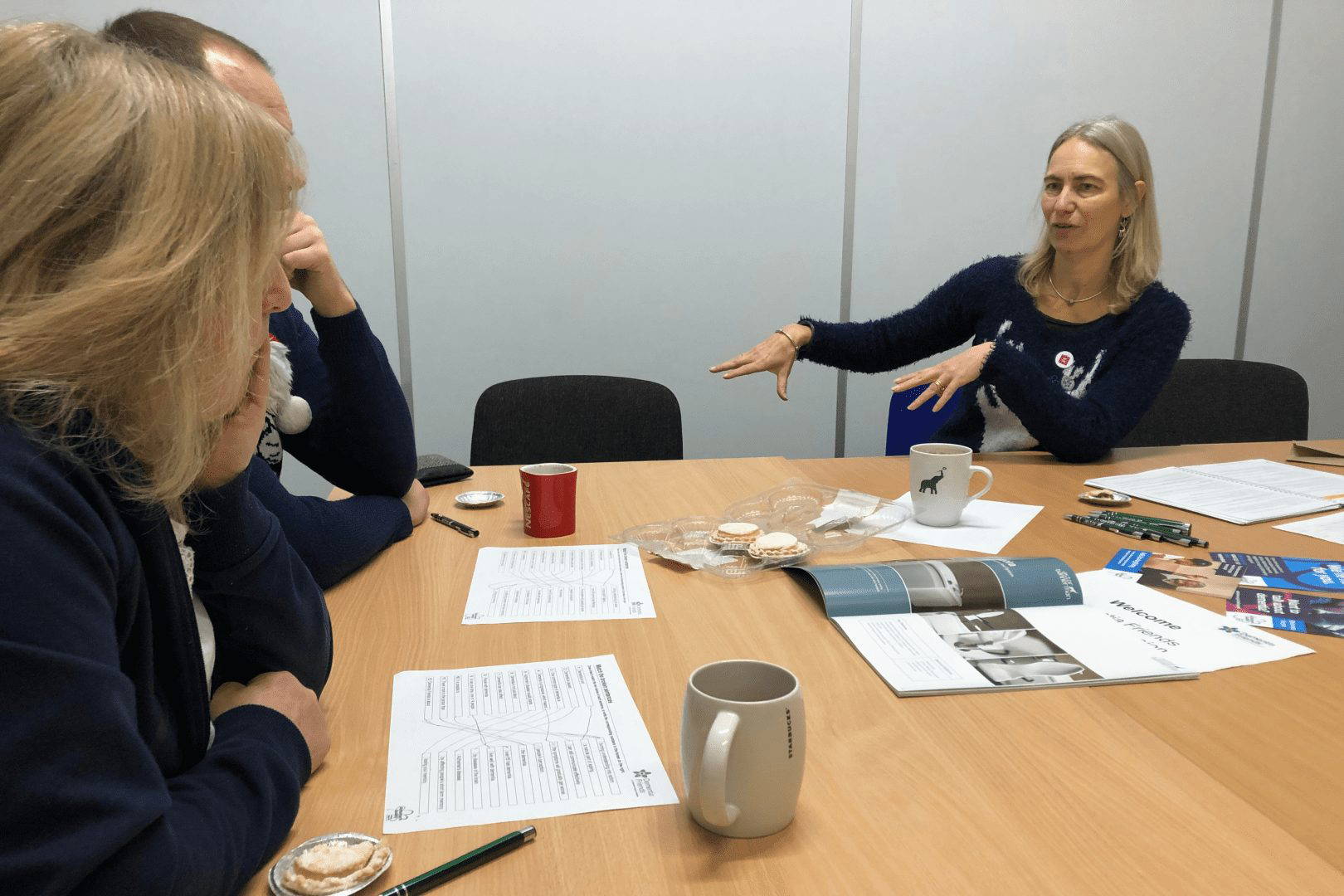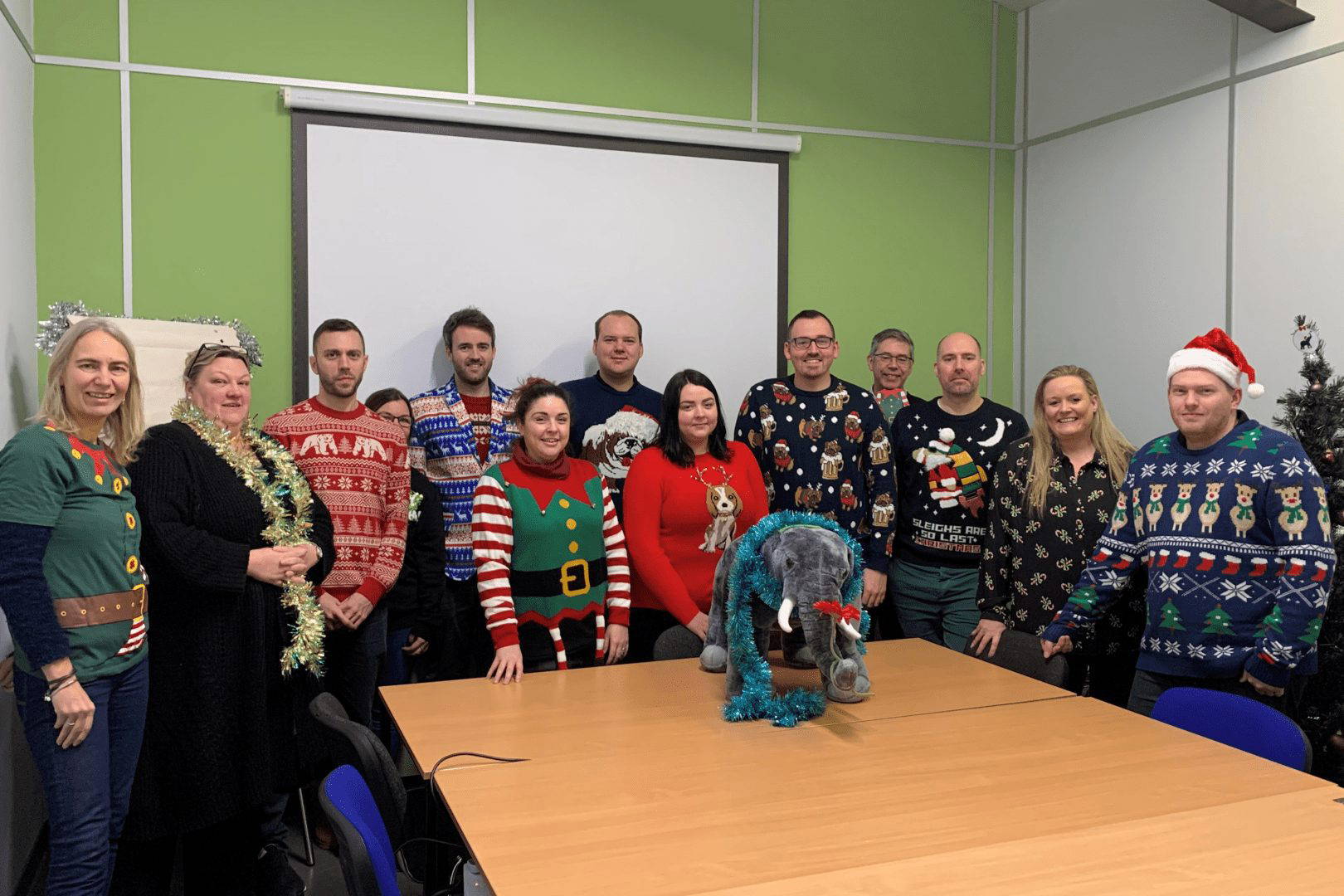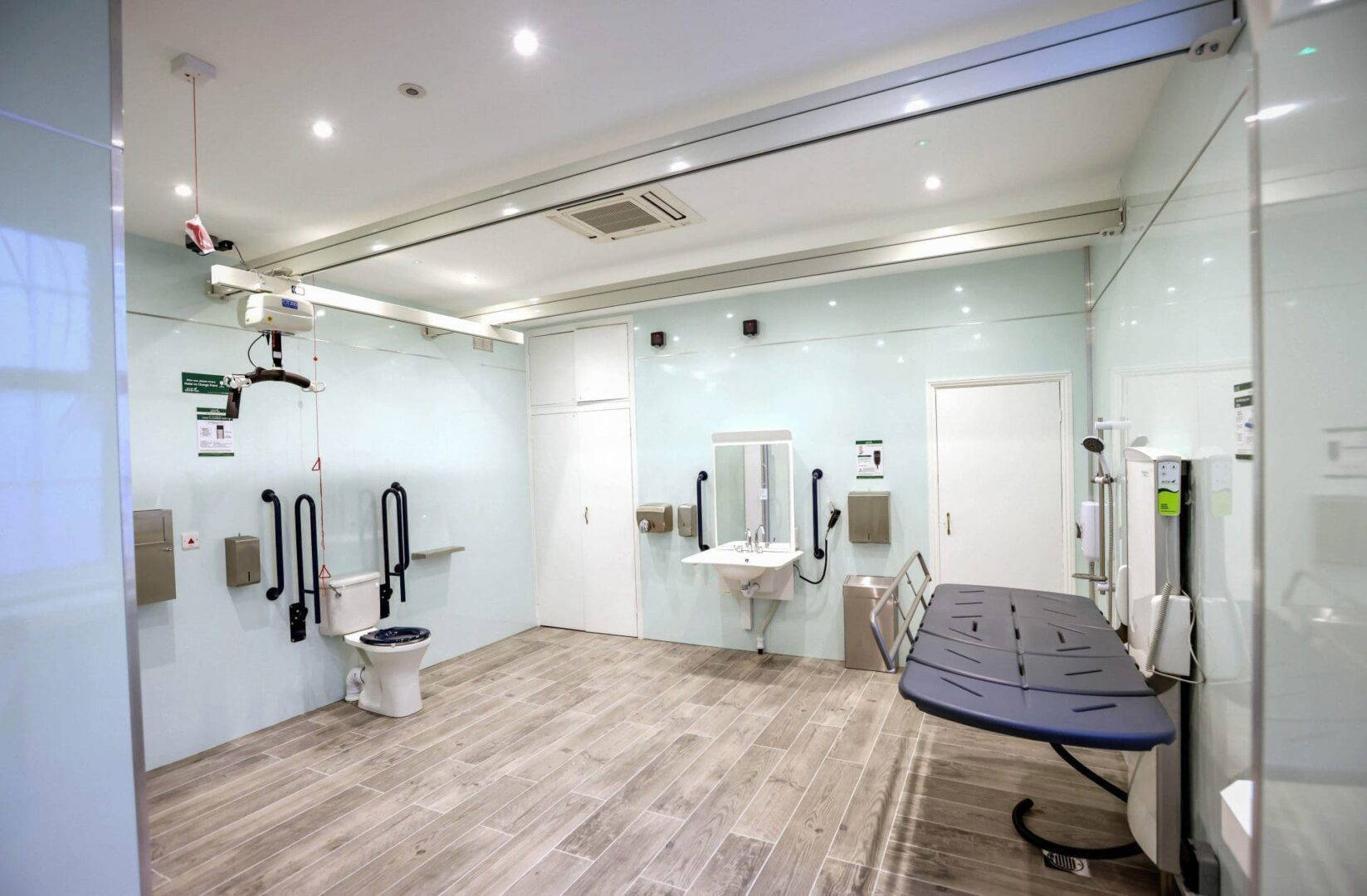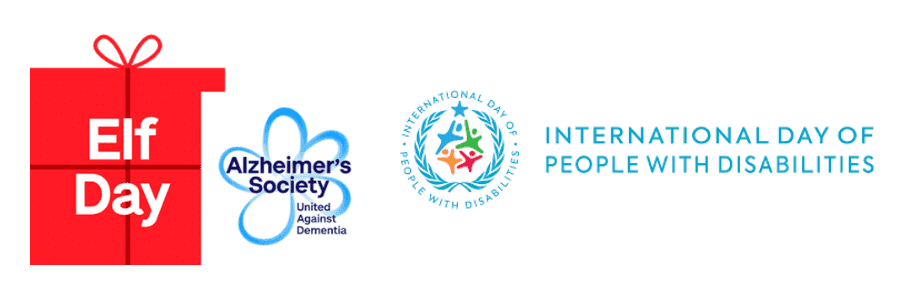Today is an important day in the disability awareness calendar for two reasons.
Firstly, it is International Day of People with Disabilities, and the theme this year is ‘Fighting for rights in the post-COVID era’.
Secondly, it is Elf Day, a day to support those living with dementia, run by the Alzheimer’s Society.
To commemorate these two important days, we spoke to our Marketing Manager Jane Fraser-Hook, who has brought her passion for helping those with dementia to Astor Bannerman, about her experiences and how this sometimes hidden disability needs to be taken into account when thinking about accessibility.
“My life has given me a tiny glimpse at what it is like to live with a hidden disability: dementia. Externally, certainly early in diagnosis, many people look “healthy” and the same as they ever did, but inside there is often a turmoil going on that can undermine decisions, knock confidence and disable a person more than the physical impact of the condition.
Imagine walking down a street and being greeted by a person that obviously knows you well. You look up and have absolutely no recognition of the person at all. Ultimately how long would you still feel confident to walk down a street on your own? Imagine going to your music group – the same one you have been to for years – and suddenly you have no idea what the music on the sheet means. You may feel silly or redundant or a nuisance.

Jane running a Dementia Friends session in 2019

Elf Day at Astor Bannerman 2019
I used to run support groups for people living with dementia and their families. Wonderful, funny, caring people from all backgrounds but with a common thread – all held a dementia diagnosis. Everyone is different, everyone’s brain is different and everyone’s dementia is different, and therefore the impact of dementia is different for everyone. It was very interesting to observe how people coped with their diagnosis – denial was frequent; some had a thirst for knowing everything there was to know about the disease; some went into planning overdrive; and some put little supports in place and just kept on going for as long as they could. Many kept their diagnosis a secret from their family or close friends for fear that they would be looked down on or treated differently, or because they simply did not want to admit to themselves what was going on.
Dementia is a cruel illness, and whilst support tools like making lists, writing notes, setting reminders or alarms can help a person to maintain their lifestyle for many years in some cases, ultimately it is a degenerative disease and may well lead to many bodily functions being affected such as speech, motor skills or toilet functions. And still, the outward body can look good to an unfamiliar eye. Still the disease can remain hidden.
When you see someone struggling to enter a room, or getting confused on a bus or in a supermarket, there may be a hidden explanation. Similarly, if you see an elderly couple enter a disabled toilet or a Changing Places toilet, there may be a very valid reason for one of them to need support. It is so important not to be judgemental. It’s simple, if someone is struggling, don’t question them – offer them help. If someone is using a specific facility, have faith in the fact that they probably need it (shame on those that use accessible facilities simply to queue jump).

Changing Places Toilets can be very important for those with dementia and other hidden disabilities
Dementia is also considered to be an illness that only affects older people. This is sadly not true. Consequently the disease can be even more hidden in a younger person. Not many people would consider that unusual behaviour in a 40-year-old could in fact be the result of early on-set dementia.
In our Memory Cafes, we celebrated each person for who they were, what they had achieved and the wonderful person they still were. We also provided a safe, non-judgemental environment where everyone could relax, not worry about outbursts, not care if someone used their fingers to eat their food because it was easier; to understand if someone behaved inappropriately, and to listen when people wanted to let off steam, or talk in a way only comprehensible to themselves. I always pitched Memory Cafes as a safe haven to meet with friends and relax and enjoy a few hours away from home. I also thought that my (and many others) goal would be reached if we lived in a world that didn’t need Memory Cafes – in a world where everyone simply understood and accepted dementia so there was no need for a safe haven.
When I moved to Astor Bannerman, I attempted to integrate my knowledge of dementia to try to consider the needs of those living with dementia within the design of new products and the planning of accessible rooms, particularly Changing Places Toilets. I have also undertaken the commitment to run Dementia Friends sessions regularly both with employees and also with customers in order to increase awareness and understanding of dementia.
I have seen and lived with dementia first hand both professionally and personally and I know a little understanding goes a long way. I also understand that dementia is just one of many hidden disabilities, and I hope my exposure to it has helped me to be a more considerate and understanding person to anyone living with a disability that lies beneath the skin”.
ABOUT ASTOR BANNERMAN
Astor Bannerman offer the full range of products specified by Changing Places regulations, including fixed and mobile changing tables, hoists, height adjustable washbasins, toilets and accessories. They are always developing new products, and are proud to have developed the Astor Invincible, the first changing table designed specifically for Changing Places toilets.
ABOUT AVESO
The team at Aveso are passionate about Changing Places toilets. They have supported the official Changing Places campaign since 2013, and can provide free, expert advice on all aspects of the Changing Places planning and design process.

